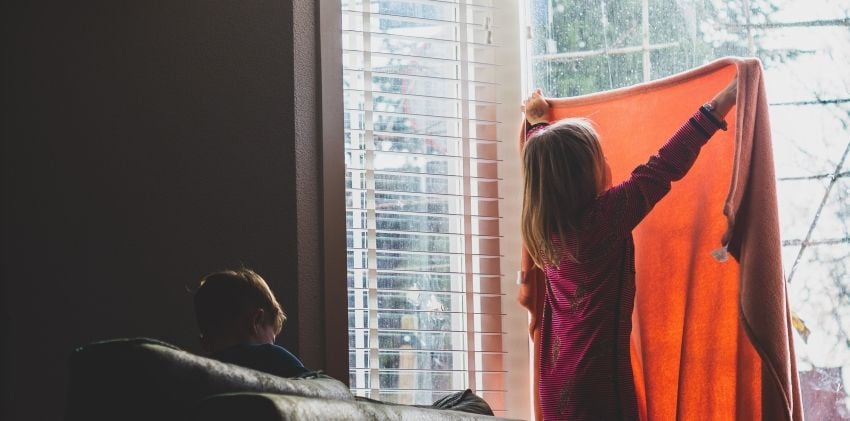Share Content
Article Link Copied
Play during pandemics? Preschoolers learn about germs

In the current extraordinary times, our kids’ health has even higher priority. Elizabeth Bonawitz, Jacobs Research Fellow, tells us how an understanding of germs might help. But also, that it is time for parents to relish children’s play and joyful exploration.
How are you and your family dealing with the extraordinary situation caused by the COVID-19?
I am in a privileged situation because I can share parenting, I can work from home, and we have the resources we need right now. It is a very different situation than most families right now, who are dealing with inordinate amounts of stress. We have been able to keep a schedule for our children that includes time for working on the assigned classwork, on chores, and importantly time to play. But I recognize this kind of schedule may not be an option for many families who are struggling right now.
Is your parenting affected by being a developmental scientist by profession?
Although I don’t personally run my children in my own studies, we have been enjoying taking part in the many online studies from various developmental labs. I have been involved in a new Parent Researcher Collaborative (PaRC) where parents can choose from various online studies and sign up to have their children be part of science. Studies are typically fun games with a researcher that take 5 to 30 min. I recommend it to any parents who are looking for activities and want to give back to the science that helps us understand children’s development.
This is not your only activity related to the COVID-19 situation, isn’t it?
True. I have long been interested in how children develop “intuitive theories” – causal beliefs about the world that guide everyday predictions and explanations. One of the interests for me and my colleague Vanessa LoBue has been children’s understanding of germs and contagion.
I guess that your research became highly relevant due to the covid-19 outbreak?
Yes. In a recent survey, we have looked at how conversations between children and parents have changed due to the pandemic. What we are seeing, perhaps unsurprisingly is that parents are talking a lot more to their children about safe health practices like handwashing, and we are looking at what kinds of talk specifically may then lead to an increase those safe behaviors.
So even small kids can be less sick thanks to understanding germs?
Well, this is our thinking – that behavior, like handwashing, might be best encouraged by developing better intuitive theories about germs and contagion. If we can find ways to explain even to very young children the causal process of illness, perhaps we will see more effective behavior changes. Part of this learning depends on interest and importance of content, so we have been looking at ways in which we can engage children, particularly preschoolers, in a playful, educational way. We are currently looking into several options such as a board game, storybooks, or an app. Our studies focus on parents as well as daycare centers to find the most convenient and effective methods.
It sounds like play has an important role in learning?
Definitely. Children are the most powerful learning machines in the universe, but many don’t know that children are also very effective at driving their own learning. In fact, the kinds of things that often “just” look like play to us, are really children engaging in learning. I would like to reassure parents that when kids are not in school now, but they are, say, building forts around the house, stacking all your couch cushion pillows, and dragging blankets off the bed to drape over the teetering walls. Well, they are making a mess, but they are also learning about physics and balance. They are testing out hypotheses and revising their beliefs from the outcomes. They are improving their planning and problem solving skills. They are developing confidence that they can self-entertain. It’s a wonderful mess to see because that play means so much was learned.
You research also guided play, which is relevant for all parents staying home with their kids. Do you have any tips for parents?
As a recent BOLD article by Meredith Rowe shows us, quality, not just quantity matters. Even if you have just a 15-minute break, take that time to play with your child rather than worry about drilling them on school content. Get down at their level, ask them questions and listen to what their ideas are, talk with them rather than at them, and be playful and silly. We know that guided play is such a powerful tool for learning. But moreover, playful learning with a parent is important for emotional wellbeing too. With all the stress caused by the pandemic, it is important for children to know that you love them, that you are there for them and to help cope, and to see that it is okay to engage in something silly rather than something overly structured, didactic, and potentially stressful.
Relish their play, because their joyfully exploration is learning. Allowing ourselves to be brought into their play is equally important, because we will experience that laughter and joy. And those little moments will help us all get through this.